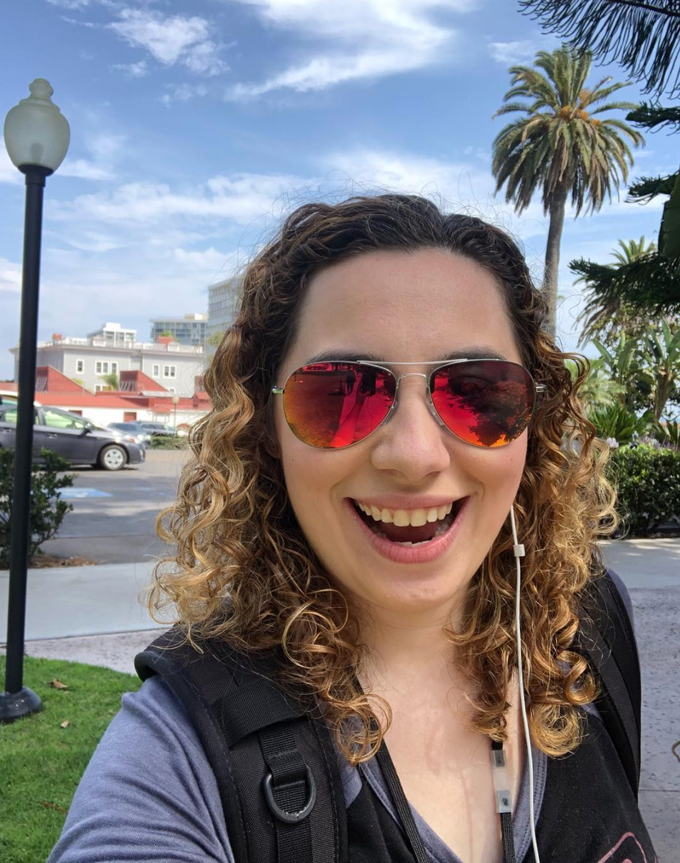Home explores the real-life struggles of immigration through the allegory of superpowers
Image Comics' Home intends to "expose comic book readers to the cruelty being perpetrated against immigrants"

A young man's real-life struggles with immigration and family separation at the US southern borders have inspired a new Image Comics series. Home examines that tragedy, through the lens of superpowers and action comics.
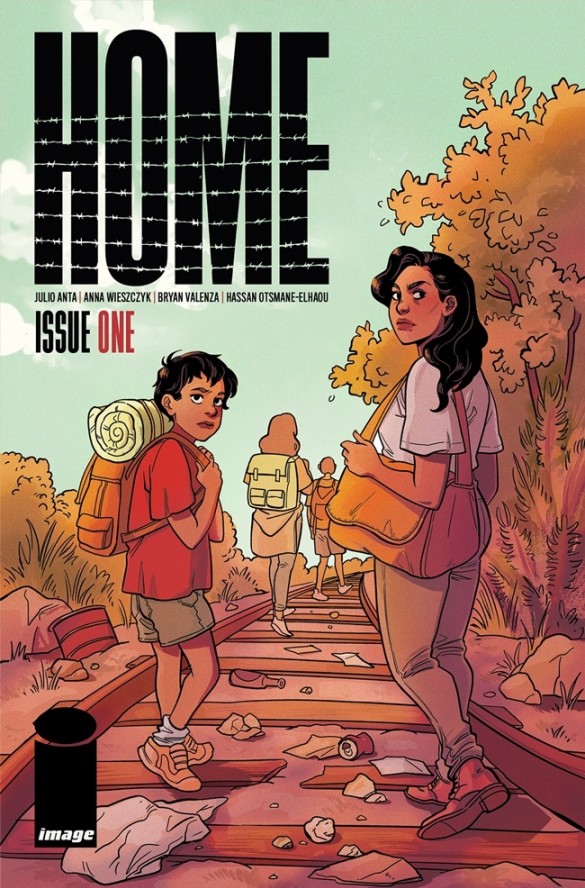
Debuting April 14, the five-issue series Home by writer Julio Anta and artist Anna Wieszcyzk examines the "interesting parallels" between the superhero origin story trope and what Anta describes as "the feeling of helplessness and loss of control you might feel as an immigrant in a foreign land."
Newsarama spoke with Anta about Home, the real-life events that inspired him to create this story, and how this works as his first professional comic book.
Newsarama: Julio, this is not only your first comic at Image Comics, but also your first professional comic ever. What made you want to start your comic book writing career?
Julio Anta: The idea for Home is actually what made me want to pursue comic book writing in the first place. Everything I've done in the comics space since starting two years ago, and everything I ever do moving forward, is all because of Home.
When family separation began at the border, I dove headfirst into following the story and learning as much as I could. It isn't until recently that I realized that this has all been a way for me to cope with the anger family separation triggered in me.
As the son and grandson of Cuban and Colombian immigrants, I'm used to immigrants, particularly Latinx immigrants, being used as a punchline by both Democrats and Republicans, but the non-stop vitriol and cruelty we saw over the last four years really wore down on me. And then when we saw children ripped away from their parents in an attempt to deter immigrants from seeking refuge in the US, I broke down.
Get the best comic news, insights, opinions, analysis and more!
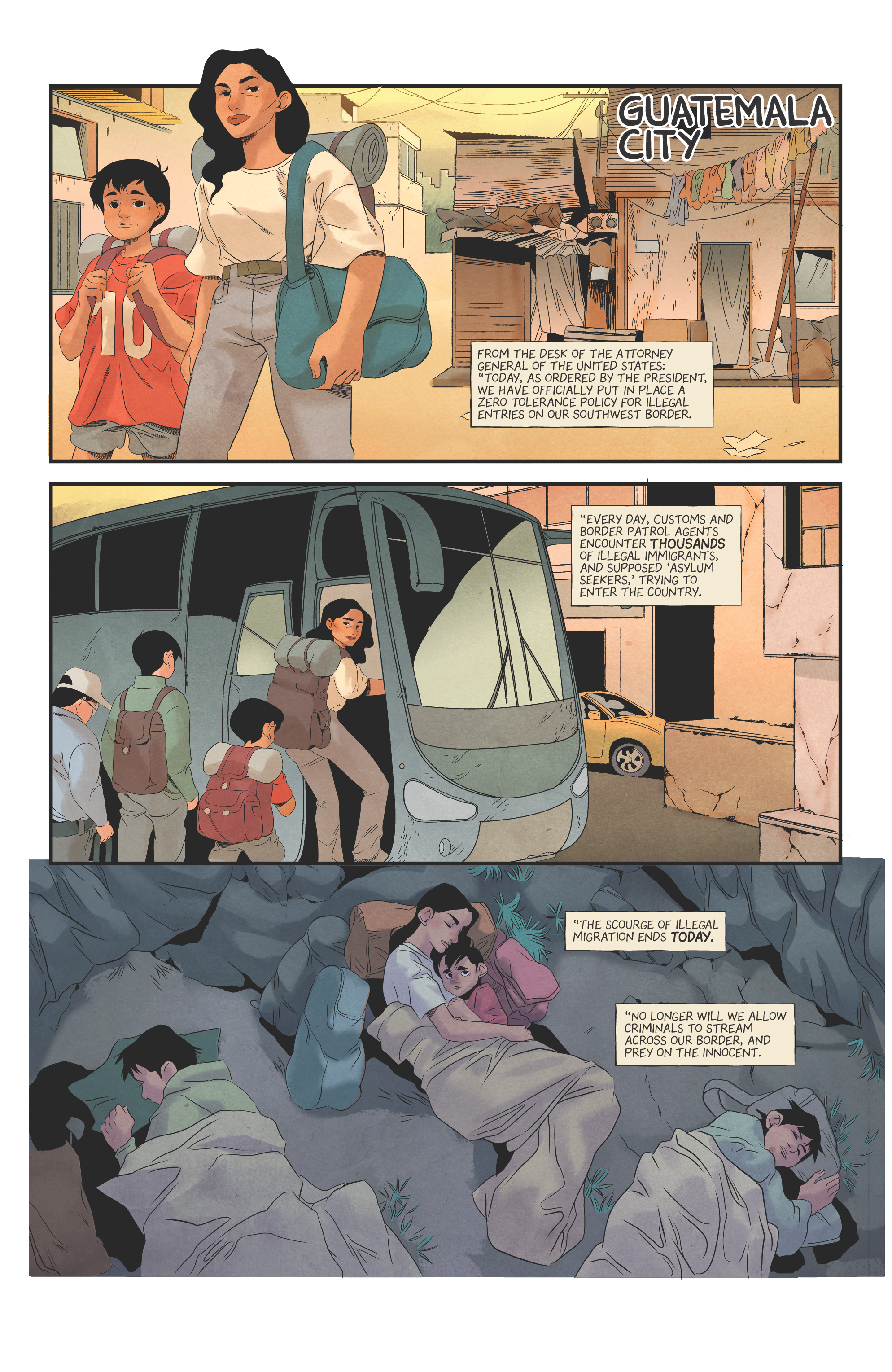
Home #1 preview
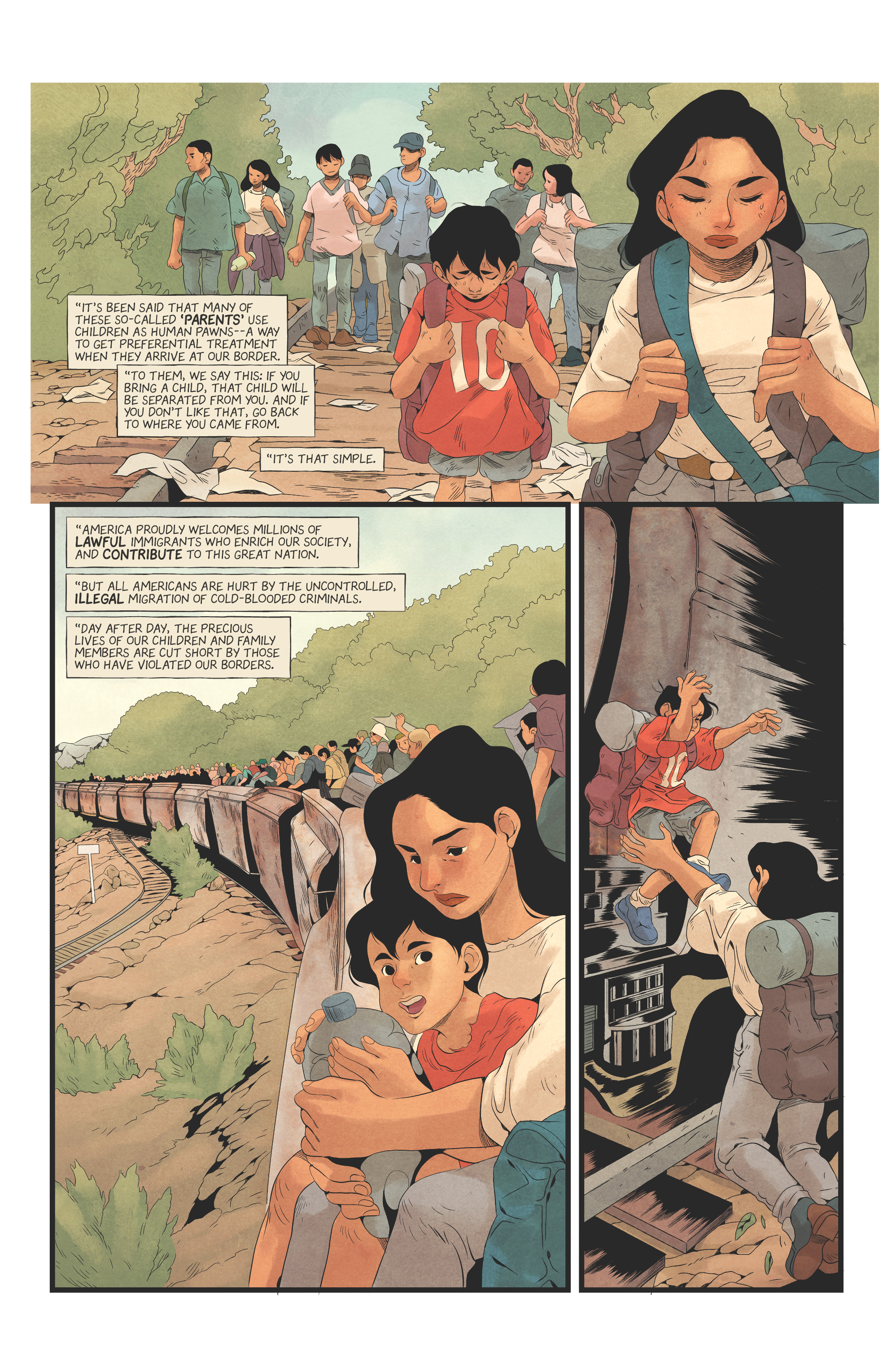
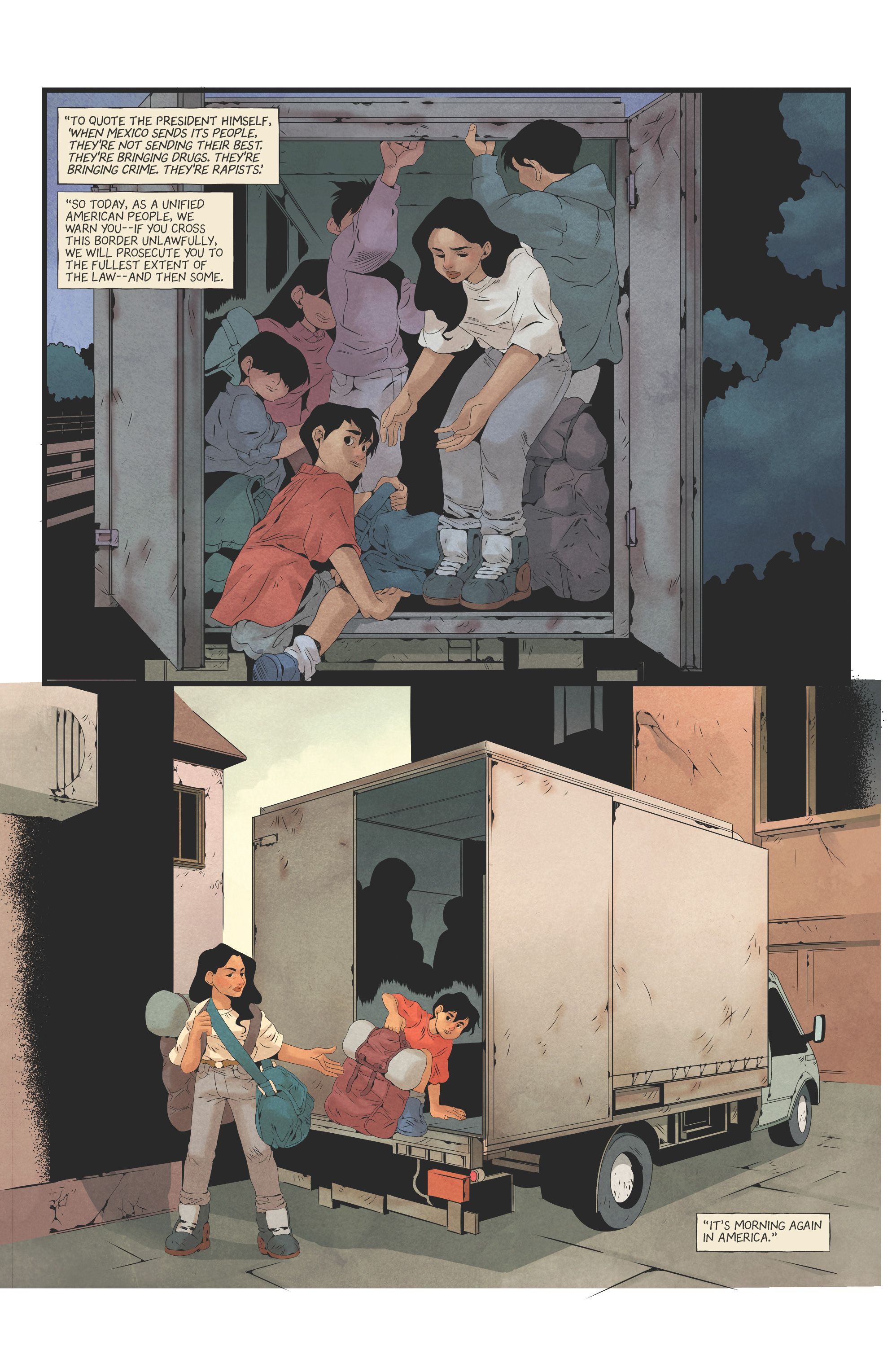
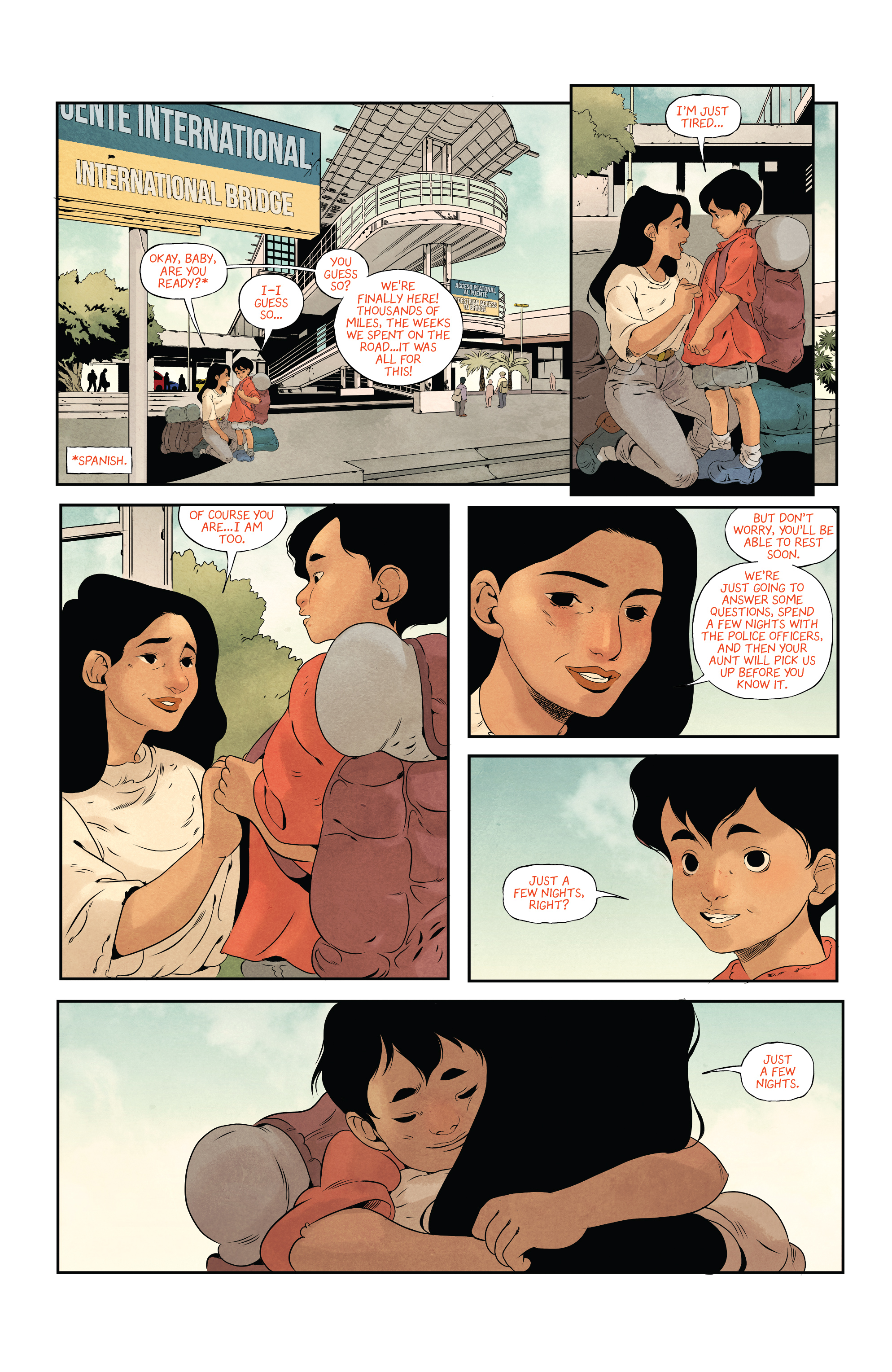
I read and listened to every interview I could find with parents whose children were taken from them and saw myself, and those I grew up with them, and felt absolutely helpless in doing anything about it. Eventually, when the idea for Home hit me, I knew I had finally found a productive outlet to deal with this grief I was feeling.
At the time though, I had no experience in writing comics, so I took the advice Ed Brisson had shared on Twitter and began writing short stories, before focusing on Home. I came up with a few ideas, worked them into short scripts, and paid artists to draw them. It was a great way to learn the craft, get experience collaborating with artists, and show publishers I could do the job. I ended up writing and releasing five mini-comics between 2019 and 2020. They're all available to read here for free.
Throughout that time of honing my skills, I was thinking about Home non-stop, since it was the reason I got into comic book writing in the first place. By the time I felt comfortable enough in my writing, I started devoting all of my time into researching, developing, and writing Home.
Nrama: How did you connect with Image?

Anta: When I eventually had a completed pitch for Home, I went to New York Comic Con 2019 and started pitching publishers on the book. Some were receptive and interested, others thought it was too "political" and didn't care too much for some guy coming up to their booth and pitching them cold.
One of the people I pitched was an editor at an Image imprint who didn't think it was the right fit for their specific imprint but thought we were doing something that Image central would be interested in. She forwarded the pitch to Image and eventually the stars aligned to make the book a reality there! I owe her a lot.
Nrama: Why did you think Image would be the perfect place for this story?
Anta: Putting aside the fact that Image is the largest creator-owned publisher in the direct market, and probably the reason creator-owned comics even exist in the first place - which is reason enough to want to work with them - what truly drew me to Image was their track record.
Time after time, Image has allowed creators the freedom to tell stories others may deem controversial, without editorial intrusion. That was huge for me, and something that proved to be true for Home as well.
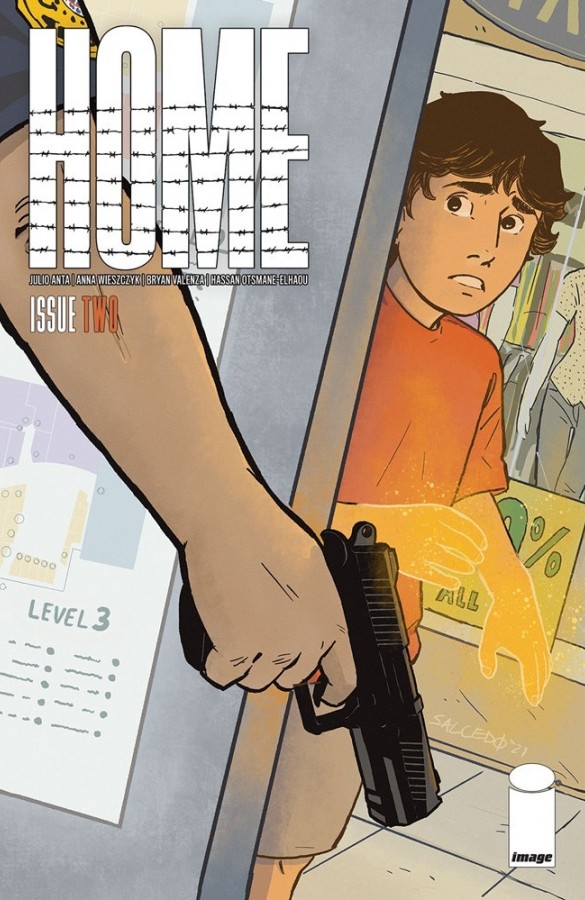
From the story, to the art, format, design elements, etc., Image allowed me to make the book I wanted to make. Image has let us do our thing, and at no point has anyone at Image asked us to do anything differently with Home. I'm not sure that would be true at any other comic publisher.
As a comic book reader though, working with Image is stepping into an incredible legacy of creators. Most of my favorite books and favorite creators have all been published by Image. It's truly an honor.
Nrama: How long have you been working on Home? Tell us the process from idea to script to publication?
Anta: I had the initial idea for Home sometime in the fall of 2018. Like I mentioned earlier, it was wholly inspired by my anger at what I was seeing happening at the border. I then moved into a phase of heavy research, and then eventually I found Anna and built the team around her. Then while working on other short comics I focused on making a pitch that was professional enough to be picked up by a publisher, and wrote out some sample pages for Anna to draw. Those ended up being the first 10 pages of Home #1.
Once Image picked up the book, we were off to the races. Now, about a year later, we're getting ready to launch Home #1 and wrapping up work on the final issue!
Nrama: What made you want to tell a heightened super-powered narrative with a very raw and real story of today's immigration plight?
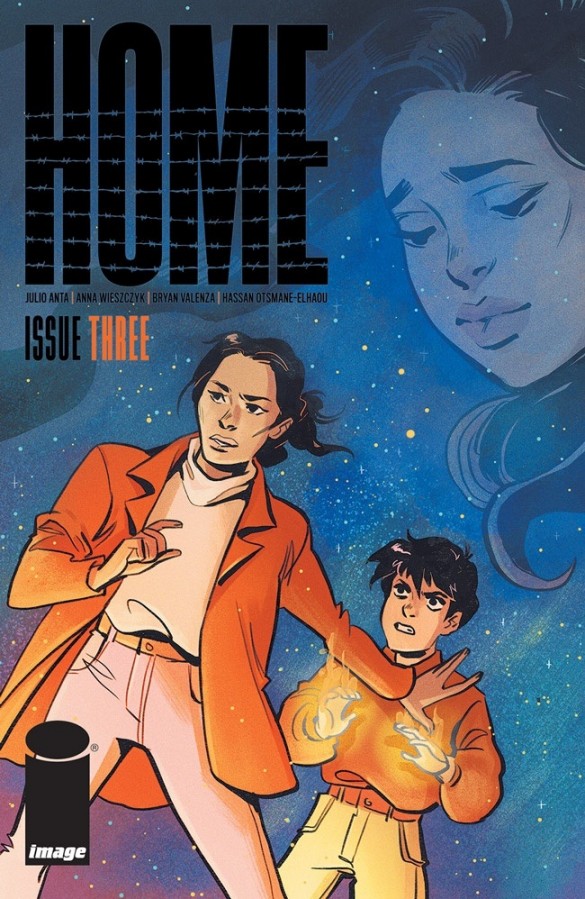
Anta: Like Nina Simone famously said, I believe the duty of an artist is to reflect the times we're living in. I don't begrudge anyone for making comics that are purely for entertainment purposes, but I personally have no interest in that.
I came into writing Home, as I have with my other projects, with a very clear intent. For Home my intent was to expose comic book readers to the cruelty being perpetrated against immigrants, particularly Latinx immigrants, at the southern border. I wanted to write a story with authentic characters that readers would fall in love with, and empathize with.
This being a comic book, particularly aimed at the direct market, I thought there were some interesting parallels between the common superhero origin story tropes and the feeling of helplessness and loss of control you might feel as an immigrant in a foreign land. Once that clicked, I knew I had to bring that superhuman element into the story.
Nrama: Tell us a bit about Home's main characters.
Anta: Home is a story about Juan, a young Guatemalan immigrant who is separated from his mother Mercedes at the border due to the Government's family separation policy. Juan is about 10 years old and mostly modeled after myself as a child. He's shy and introverted and feels things deeply. When he's taken from his mother, the trauma from that experience activates latent superhuman abilities that he has absolutely no control over. He'll somehow have to learn to control these abilities and survive without his mother.
Nrama: How did you connect with your artist Anna Wieszczyk?
Anta: As a new comic book writer my way of finding artists at the time was on random sub-Reddits, to be perfectly honest. I put up a listing with a brief description of Home, and asked if anyone was interested in collaborating on the book. Luckily, Anna responded and I instantly fell in love with her work. Not the typical origin story for an Image book, but it worked for us!
Nrama: What was your collaboration process with each other like?
Anta: My scripts tend to be very detailed, and filled with reference images that I've accumulated while researching. I include a lot Google Maps screenshots and videos for locations and Anna just runs with it! She's so great at taking those references and staying true to these environments, while also making sure they suit the needs of the story.
One of my favorite things about her art though is how alive the character acting is, especially in the more emotional scenes. Working on this book together has been a wonderful. I'm super excited for everyone to see how these five issues turned out. I think it's some of her best work, but I'm obviously biased!
Nrama: What made you want to make this a limited series compared to your upcoming project Frontera - a YA graphic novel?
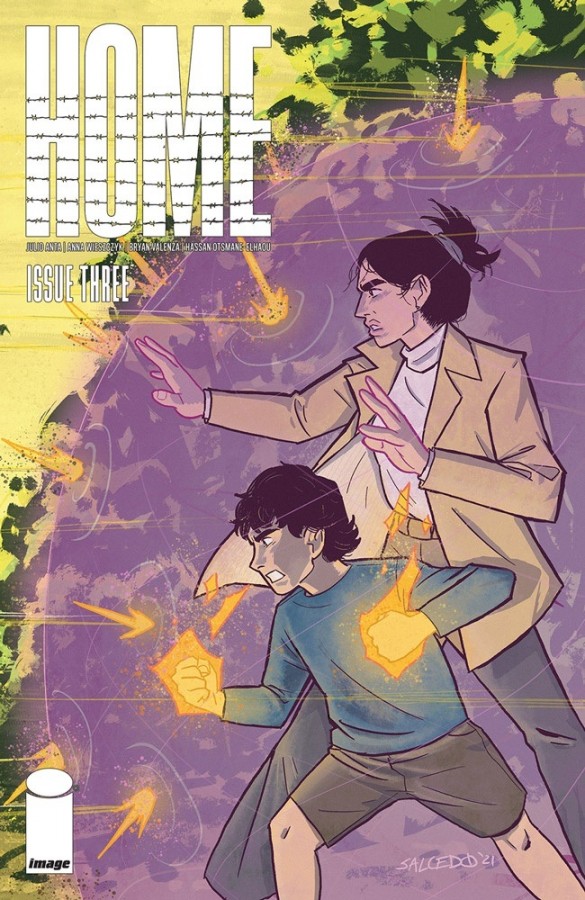
Anta: The direct market has very few Latinx creators, and even less Latinx characters. As a lifelong reader who goes to my local shop every Wednesday, I wanted to be part of the ongoing effort to bring more Latinx characters into these spaces. So, when I started writing Home, I knew I wanted it to be a miniseries rather than a graphic novel because the audience I was trying to speak to with this book was the audience that buys single issues.
Nrama: Would you like to do more Home? What do you think that would look like?
Anta: Definitely.
Home is currently a stand-alone miniseries with a proper conclusion, so if Home #5 is the last we ever see of this book I'll be happy with what we've done. But if it is successful and Image is interested in continuing Juan's story, I know exactly where I want to go.
As a matter of format, I imagine we would follow up this initial miniseries with another miniseries that continues the story and be read as its own stand-alone book. The response we're seeing before the first issue is even out has been fantastic, so I'm optimistic!
Home #1 (of 5) goes on sale April 14 in comic shops and on digital platforms, with a collected edition due out October 26. Check out our list of the best digital comics readers for Android and iOS devices.
Kat has been working in the comic book industry as a critic for over a decade with her YouTube channel, Comic Uno. She’s been writing for Newsarama since 2017 and also currently writes for DC Comics’ DC Universe - bylines include IGN, Fandom, and TV Guide. She writes her own comics with her titles Like Father, Like Daughter and They Call Her…The Dancer. Calamia has a Bachelor’s degree in Communications and minor in Journalism through Marymount Manhattan and a MFA in Writing and Producing Television from LIU Brooklyn.
